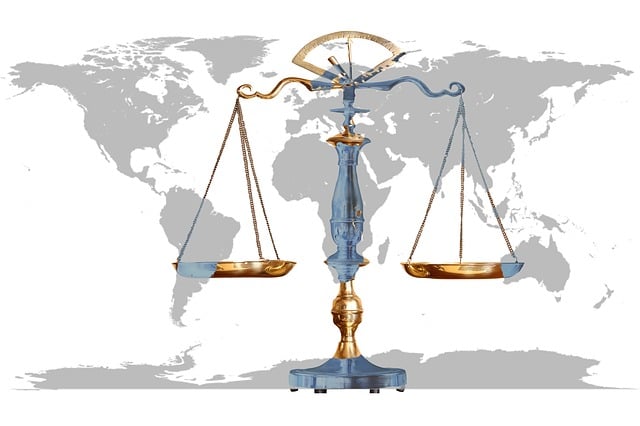Oregon probate disputes arise from will interpretations, undue influence, and personal property disagreements, often involving complex estate administration issues. To navigate these conflicts, nonlawyers should educate themselves on Oregon's specific laws and procedures for will probating, conflict resolution, and alternative dispute resolution (ADR) methods like mediation and arbitration. Engaging attorneys specializing in Oregon probate disputes is advisable to ensure legal compliance and efficient resolution, while clear communication among all parties is essential for a collaborative and fair process.
“Oregon probate disputes can be complex, but understanding the process is crucial for nonlawyers navigating estate matters. This comprehensive guide offers valuable insights into common causes of dispute and effective resolution strategies. From recognizing potential issues like contested wills and trust administration problems to exploring alternative dispute resolution (ADR) methods, you’ll learn how to protect your interests. Discover the role of neutral mediators, tips for communication, and whether DIY or legal representation is best suited for your situation.”
- Understanding Oregon Probate Disputes: An Overview for Nonlawyers
- Common Causes of Estate Disputes in Oregon
- Alternative Dispute Resolution (ADR) Methods in Oregon Probate Cases
- The Role of a Neutral Mediator in Oregon Estate Settlements
- Legal Representation vs. DIY Approach: Navigating Oregon Probate Laws
- Strategies for Effective Communication During Estate Dispute Resolutions
Understanding Oregon Probate Disputes: An Overview for Nonlawyers

Oregon probate disputes can arise from a variety of situations, often involving family members or beneficiaries who disagree on how an estate should be distributed. These conflicts may stem from differing interpretations of a will, claims of undue influence or lack of capacity when the will was created, or disputes over personal property left behind. Nonlawyers involved in such matters need to understand that probate is a legal process designed to ensure that the wishes of the deceased are carried out while also protecting the interests of all parties.
The first step in navigating Oregon probate disputes is to familiarize oneself with state laws and regulations. Oregon has specific procedures for probating wills, administering estates, and resolving conflicts that arise during these processes. By understanding these legal frameworks, nonlawyers can better communicate their concerns and rights to attorneys or mediators who can provide expert guidance. This proactive approach helps ensure fairness and efficiency in resolving probate disputes.
Common Causes of Estate Disputes in Oregon

In Oregon, like many states, estate disputes can arise from a variety of sources, often involving family members and close relatives. Common causes include disagreements over the validity of a will, allegations of undue influence or coercion in the creation of a will, and conflicts over the distribution of assets as per the decedent’s wishes. These Oregon probate disputes can be particularly emotional and complex, with each party having their own interpretation of the deceased’s intentions.
Another frequent trigger for estate disputes is when there are multiple beneficiaries with competing interests. This can lead to conflicts over whether certain assets should be distributed equally or according to specific provisions outlined in a trust or will. Additionally, issues related to the administration of an estate, such as allegations of misconduct by a personal representative or executor, can further exacerbate these tensions and result in lengthy legal battles.
Alternative Dispute Resolution (ADR) Methods in Oregon Probate Cases

In Oregon, alternative dispute resolution (ADR) methods offer a more efficient and cost-effective way to handle Oregon probate disputes compared to traditional litigation. Methods like mediation and arbitration are increasingly popular in probate cases as they allow for quicker resolutions and maintain a more amicable relationship between family members involved. Mediation, for instance, brings together the parties and a neutral third party who facilitates open communication and helps find mutually agreeable solutions. This process is particularly beneficial in Oregon probate disputes where family dynamics can be complex.
Arbitration, on the other hand, involves submitting the dispute to a selected arbitrator who makes a binding decision. It offers more flexibility than court proceedings, allowing parties to tailor the process to their specific needs. Many Oregon probate cases benefit from these ADR methods as they provide a less adversarial environment, promote confidentiality, and often result in cost savings for all involved parties.
The Role of a Neutral Mediator in Oregon Estate Settlements

In Oregon estate settlements, a neutral mediator plays a crucial role in resolving probate disputes among family members or beneficiaries. Mediators are impartial third parties who facilitate communication and negotiation between conflicting parties. They don’t make decisions but rather guide discussions to help everyone reach an agreement that meets their interests. This process is particularly beneficial for Oregon probate disputes, as it allows families to avoid lengthy and costly court battles while maintaining control over the estate’s distribution.
Mediators in these cases ensure a safe and supportive environment where emotions can be expressed openly. They encourage active listening, clarify complex issues, and help identify underlying interests. By facilitating a collaborative problem-solving approach, mediators enable family members to find creative solutions that address everyone’s concerns. This results in more satisfying outcomes for all involved parties, streamlining the estate settlement process without compromising fairness or legal requirements.
Legal Representation vs. DIY Approach: Navigating Oregon Probate Laws

When it comes to Oregon estate dispute resolution, choosing between legal representation and a DIY approach can be challenging. While some nonlawyers may feel confident navigating complex probate laws on their own, especially for simpler cases, this is not always advised. Oregon probate disputes can involve intricate legal procedures and unique considerations that require professional expertise.
Engaging an attorney specializing in estate law offers several benefits. They possess in-depth knowledge of state-specific regulations, including recent changes to Oregon’s probate code. Legal professionals can provide tailored guidance, ensuring compliance with legal formalities. This approach may save time and money in the long run by minimizing potential errors or mistakes that could lead to costly delays or legal complications.
Strategies for Effective Communication During Estate Dispute Resolutions

Estate dispute resolutions in Oregon, often involving complex probate issues, demand clear and constructive communication among all parties. Nonlawyers involved should focus on active listening during discussions or negotiations. This involves fully comprehending the other person’s perspective, asking clarifying questions, and repeating back their points to ensure understanding. Effective communication also entails expressing your own thoughts and concerns respectfully, using simple language where possible, and avoiding accusatory tone or language that could escalate tensions.
In addition to active listening, open and honest dialogue is crucial. This includes being transparent about expectations, goals, and potential outcomes. Sharing relevant information upfront can help prevent misunderstandings and unnecessary conflicts later. Nonlawyers should also be mindful of nonverbal cues, ensuring body language reflects openness and receptiveness. Regularly seeking feedback from all parties involved can facilitate a collaborative environment, which is often key to resolving Oregon probate disputes efficiently and fairly.






